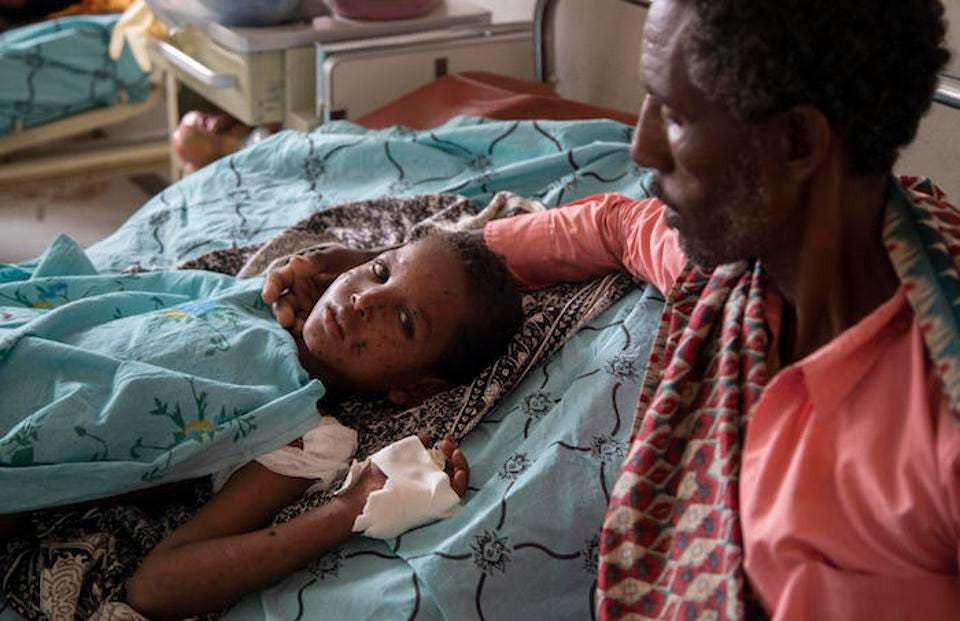01/01/2022 Etiopia
“If you ever come across anything suspicious like this item, please do not pick it up, contact your local law enforcement agency for assistance”
Shumuye, 10, lives with his family in Yechella, in central Tigray, an area that has seen intense fighting due to conflict in northern Ethiopia. Their house was burned down during the fighting, and they have been staying with extended family. The boy’s father, Barhe Atsma, was taking advantage of a reprieve in armed fighting to farm his land when Schumuye picked up a curious object that turned out to be a grenade. It exploded, shattering his leg and killing a friend. The presence of unexploded ordnance is just one of many threats to children in Tigray, due to an ongoing crisis that has only escalated since fighting erupted in the region over a year ago. Since then, scores of children have died of starvation, with many more at risk as the civil conflict extends deeper into neighboring regions Afar and Amhara.
Tens of thousands of children caught in Ethiopia conflict are severely malnourished
As access to some of the worst-affected areas increased, UNICEF’s worst fears about the extent of child malnutrition were confirmed, according to agency reports. Based on screening data from July, UNICEF estimated that 100,000 children were at risk of severe acute malnutrition over the next 12 months — 10 times higher than the country’s average annual caseload. At the end of October, UNICEF reported that 80,000 children under age of 5 were severely malnourished in Tigray, Afar and Amhara. Nearly half of all pregnant and lactating women were found to be acutely malnourished as well, increasing their risks of pregnancy- and childbirth-related complications. Malnutrition during pregnancy also increases the risk of delivering a low-birth-weight baby prone to sickness and death.
Photo-Source: forbes.com
Biography of a Bomb
Dear editors, Biography of a bomb is aimed at highlighting the danger caused by unexploded bombs. Moreover, the most important aspect is that we work completely non profit, raising awerness about this topic is what drives us. We apologize if we make use of pictures in yours articles, but we need them to put a context in how findings are done. We will (and we always do) cite source and author of the picture. We thank you for your comprehension





